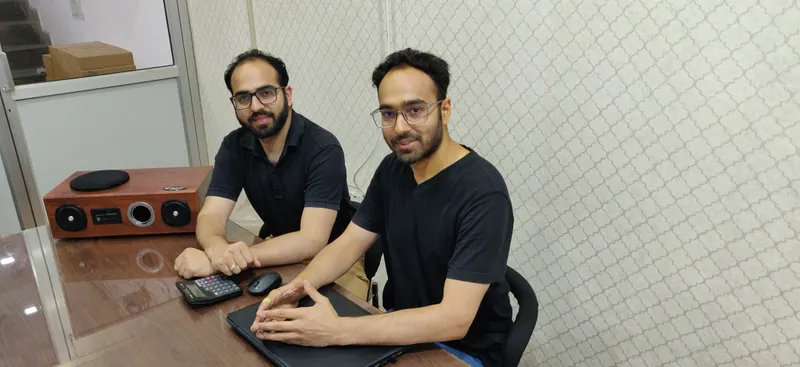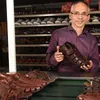5 Indian brands selling affordable, low-cost products in Tier II and III markets
From pens to beverages, SMBStory lists five Indian businesses that are producing low-cost and affordable products while also serving the hinterland markets of India.
Gone are the days when metropolitan cities were considered the most important markets for a business to succeed. Moreover, the COVID-19 pandemic has made it evident that in the days and months ahead, local economies will emerge stronger, as several people have abandoned crowded metros to return to their native towns to work from the comfort of smaller towns.
A report by consumer and retail consultancy firm Kearney, further reveals that Tier II and III cities will drive the next phase of India’s retail growth. The report titled Kearney India Retail Index also pointed out that deeper penetration of mobile phones, internet and higher disposable incomes have further uplifted the rural markets. “This influx of investments has put these cities on a fast track to reaching the retail potential of Tier I cities,” the report read.
From pens to beverages, SMBStory, lists five businesses of India that are producing low-cost and affordable products while also serving the hinterland markets of India.
TABP Snacks and Beverages

Brindha Vijayakumar and Prabhu Gandhikumar, Co-founders, TABP Snacks an Beverages
Prabhu Gandhikumar was working as a consultant in the US for many years before he moved back to India in 2012 to join his family business of manufacturing metal castings in Coimbatore. He, however, felt a deep sense of dissatisfaction.
In 2016, he explored various sectors he could venture into, and beverages seemed like a good option. He realised that daily wage earners yearned for carbonated drinks that were affordable yet tasty, especially during summer months like April, May, and June.
Most of the carbonated drinks in India are sold by FMCG giants such as Pepsi, Coca Cola and Nestle. A 300 ml Coca Cola can typically cost between Rs 20-35, a rather high order for those in the bottom of the wealth pyramid.
According to several data reports, a daily wage worker, on average, earns between Rs 9,000-10,000 a month. Sometimes, even less.
Prabhu says he found a real gap in the market. And so, Prabhu and his wife, Brindha Vijayakumar, launched Tanvi Foods, focusing only on beverages, in 2016 with two flavours — mango and apple juice priced at Rs 10.
There was no looking back since, and the company later got converted into TABP Snacks and Beverages in 2018. According to the numbers shared by Prabhu, TABP has grown from clocking Rs 92 lakh in FY17 to Rs 35.5 crore in FY21.
Insight Cosmetics

Dinesh Jain, Founder, Insight Cosmetics
Dinesh Jain was just a child when his father Bastimal Jain started a small cosmetic manufacturing unit making products like sindoor, nail polish, talcum powder, etc. in the late 1970s.
Dinesh often visited the unit after school, keenly observing the daily operations. And many years later, in the late 80s, he got involved in the business full time. Now, over 35 years later, the small manufacturing unit has scaled up to become Insight Cosmetics, a makeup brand for the masses with more than 350 SKUs of colour cosmetics — nail polish, lipstick, mascara, eyeliners, eyeshadows, foundations, concealers, lip gloss, highlighter, and more and a presence in over 7,500 stores pan India. Dinesh’s aim has been to make the brand accessible to the masses.
According to Dinesh, for a product to be pocket-friendly, its sources need to be local.
“To reduce costs, we did backward integration and set up an in-house packaging unit. Usually, brands outsource packaging locally or import packaging that adds up to the cost of the final product. We reversed this, and so our price remains competitive always. We have very limited products that go beyond Rs 295 without compromising on quality,” he adds.
Dinesh also believes that while getting into large format stores lends to scale, it also piles up costs.
He says he has never visualised Insight Cosmetics owning standalone big stores, and would rather work in a multi-brand outlet format.
Groovy Juices

Rajneesh Sharma (left) and Mitkaran Singh (right), Co-founders of Groovy Juices
When brothers Mitkaran Singh and Rajneesh Sharma – B2B manufacturers of packaged drinking water - would meet family members living abroad, they heard them gush about the high quality of juice packs available in the US and Canada.
The visiting relatives’ disparaging remarks about locally-made, Indian juice products - especially those supplied to rural areas - did bother the duo, but it also inspired them to do something about it.
Mitkaran and Rajneesh not only went on to launch their own brand of high quality fruit juice, but also made sure that they were affordably priced for underserved communities, by launching Enhaz Beverages. They also spun a fruit juice brand under it called Groovy Juices.
The brand is present in Tier II and III cities like Dehradun, Amritsar, Varanasi, Ghaziabad, Kanpur, and few more places.
Established with an initial investment of Rs 10 lakh, Groovy’s production commenced in July 2020 amidst the pandemic in the brothers’ packaged drinking water plant in Rudrapur, Uttarakhand, which was revamped to manufacture fruit juice.
Going forward, the brand does not wish to remain an offline brand forever, and plans to introduce fruit juice packs at Rs 30 and Rs 50, to sell online and offline across the country.
Obage

Ankur and Ankit Oberai, Co-founders of Obage
Founded by brothers and music enthusiasts Ankit and Ankur Oberai, Delhi-based Obage is one such brand that is making its way into the speaker segment market.
While running an OEM business between 2016-2017, Ankur and Ankit were looking for a music system for their home and realised that while there were several big and good brands in the market, they had to shell out a lot of money to purchase them. This is when the brothers decided to venture into the audio speakers segment and make products that are affordable and not too highly priced.
“Our research and development made us realise that it is possible to provide high sound quality (the same as luxury brands) at a much affordable price,” says Ankur.
By the end of 2017, they decided to close the OEM business and started working on building their own brand. The brothers, who were experienced in manufacturing, upped their game by diving into research and development.
Today, Obage offers home audio speakers in 11 categories. Moreover, the brand, whose products are priced between Rs 3,000 – Rs 8,000, has especially gained traction in Tier-II, III, and IV cities. Today, 75 percent of the company’s customers come from cities like Nagpur, Nashik, Coimbatore, and other regions of West Bengal and east India.
Linc Pen

Deepak Jalan, Chairman, Linc Pen and Plastics Ltd.
Linc Pen & Plastics Ltd. is a Kolkata-based company making ballpoint pens since 1976. It also manufactures an array of stationery items including markers, geometry boxes, pencils, and erasers.
The company was founded by Suraj Mal Jalan, who moved from Rajasthan to Kolkata in the 1960s to pursue a college degree. Suraj Mal also had entrepreneurial ambitions and was looking for ideas.
As a college student, pens were an indispensable part of his life. But there weren’t too many options back then except fountain pens and ballpoint pens. Suraj Mal wanted to make affordable pens.
Suraj Mal invested a few thousand rupees of his savings and launched the first Linc ball pen for Rs 2 from a small manufacturing facility in Kolkata. The brand also launched the Linc Ocean Gel Pen at Rs 5, which, according to Suraj Mal’s son Deepak Jalan, was the first gel pen to be sold at such a low price.
As Linc steps into its 45th year, it has clocked a turnover of Rs 400 crore in FY20 and is a listed company. Its products are available in 1.5 lakh retail stores throughout the country including Tier II and III cities like Patna, Agra, Nagpur, Ranchi, Meerut, Agartala and more, while exports reach 40 countries.
Edited by Anju Narayanan











